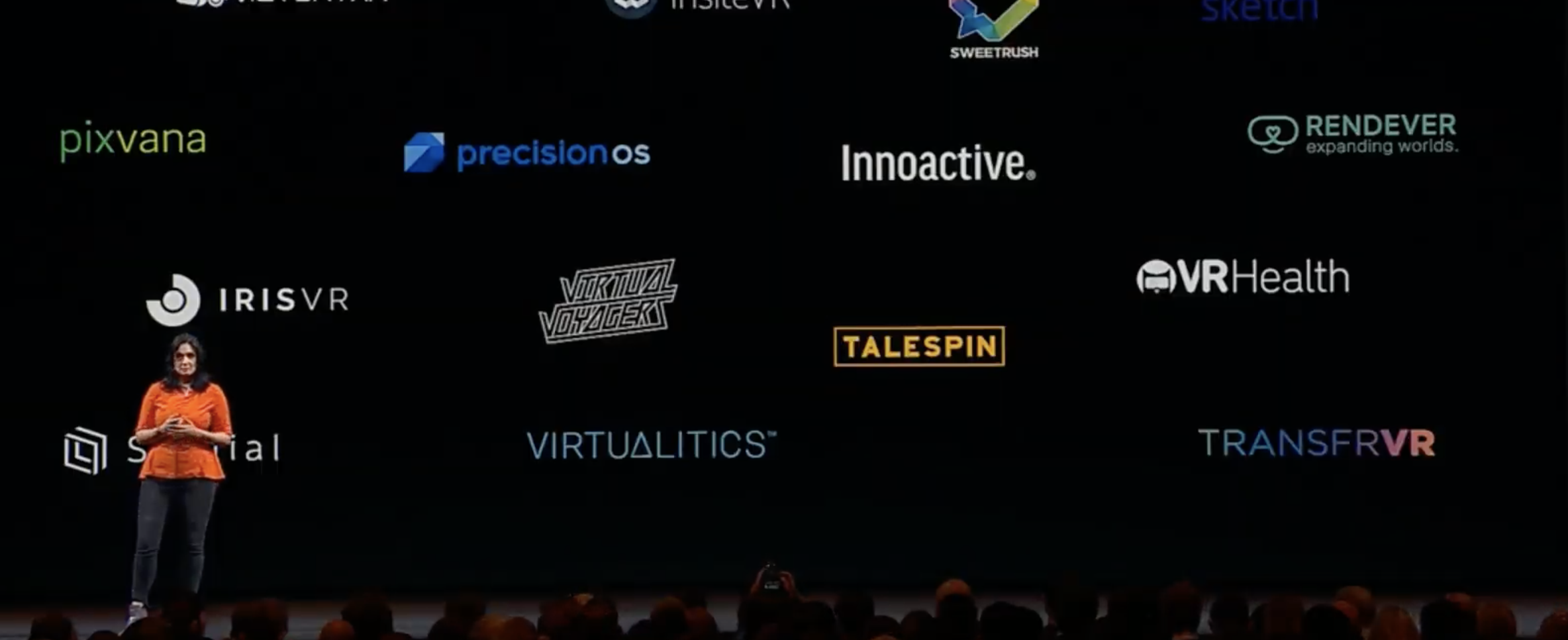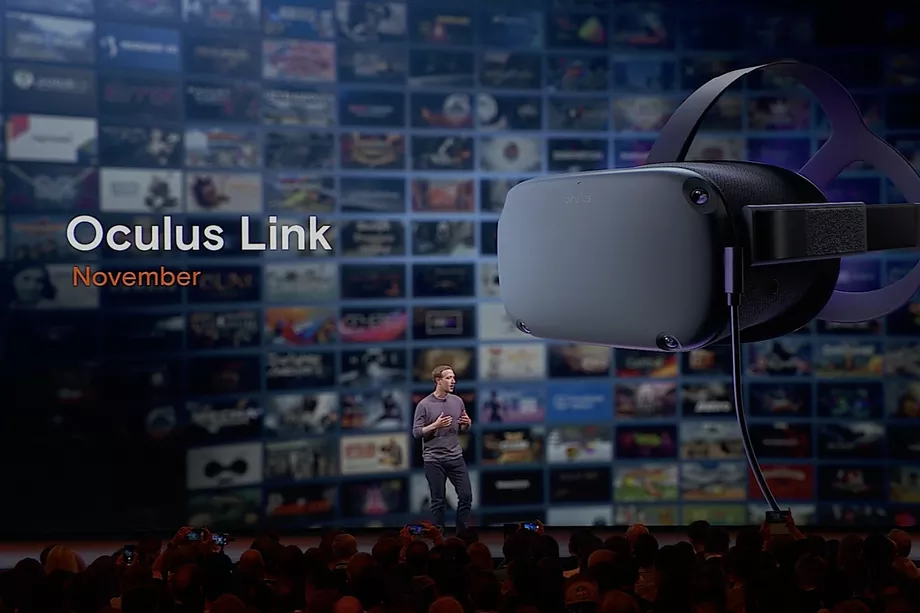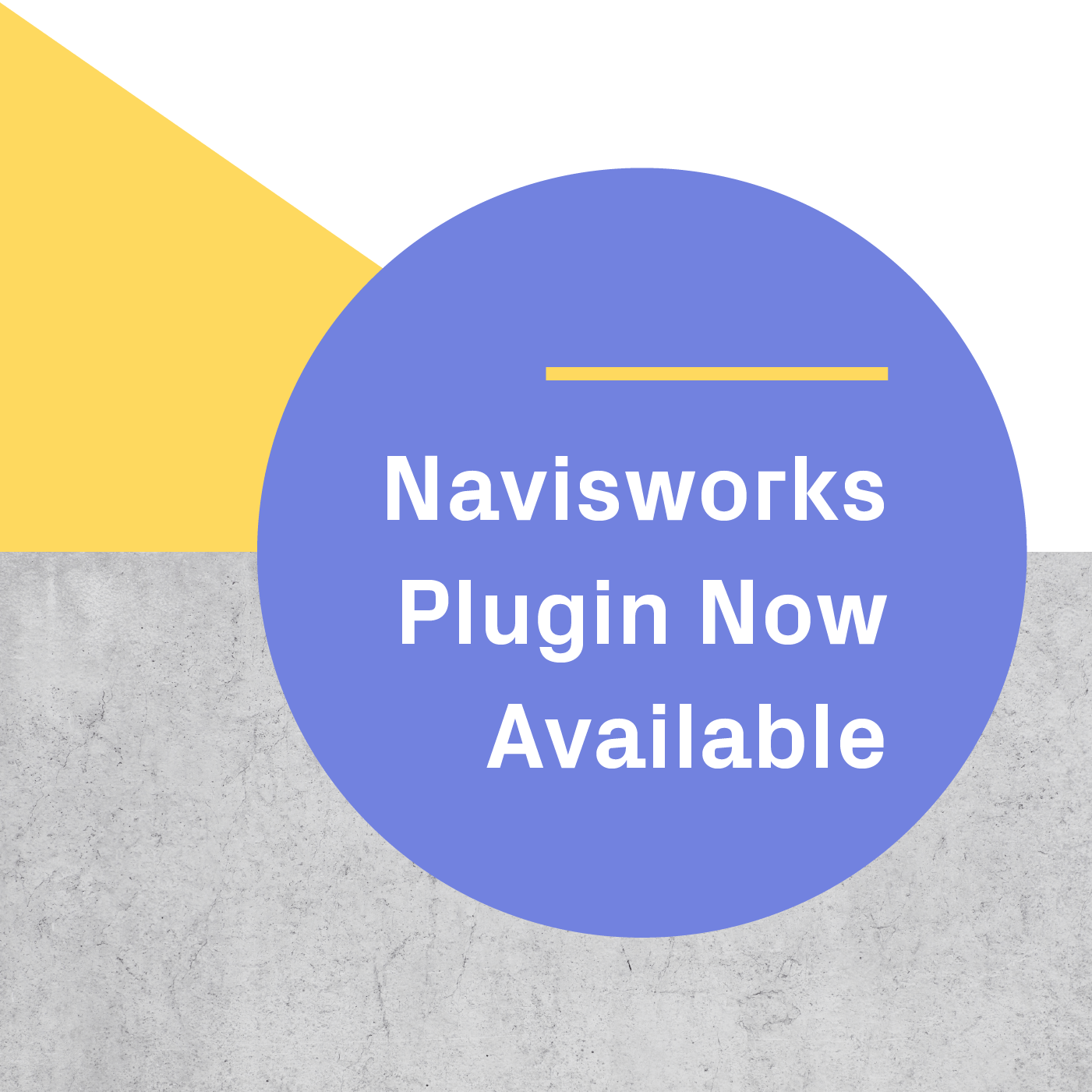Each year, the VR community comes together for Oculus Connect, a developer conference in San Jose, California that explores the future of both Oculus and virtual reality in general.
This year, Oculus took advantage of the conference to make a number of notable announcements, ranging from triple-A games (like Star Wars: Vader Immortal Episode 2, Asgard’s Wrath, and Stormland) to long-rumored hardware releases (like finger-tracking for the Oculus Quest and the ongoing development of Facebook’s AR glasses).

Maria Fernandez Guajardo, Head of Enterprise AR/VR at Facebook, spoke about the opportunities Oculus offers for enterprise professionals at OC6—and gave IrisVR a shoutout!
In this blog post, we’ll summarize 5 of the biggest takeaways from day one of Oculus Connect 6—and tell you exactly why they should matter to you as a professional.
1) Oculus Quest is taking VR to the next level: $100M spent in Oculus store so far
4 months ago, Oculus released the Quest, their first standalone, immersive VR headset.
We’ve always been huge fans of the Quest here at IrisVR because it’s accessible, easy to use, and affordable—the way we see it, the Quest is bringing VR into the mainstream for everyone from gamers to VDC teams and engineers.
So, we were very excited to hear at OC6 that the Quest has been delivering serious results in terms of profitability and growth for Oculus and the VR industry as a whole.
During his opening keynote, Facebook CEO Mark Zuckerberg attested to the fact that $100 million has now been spent by consumers in the Oculus Store thus far. While this statistic alone is impressive, what makes it even cooler as that a massive 20% of those sales come straight from Oculus Quest—and that’s in only 4 months on the market.
Clearly, the Quest is making the impact that we predicted and hoped for. This headset is here to stay, and it’s only getting better. Which leads us to the next big announcement of OC6…
2) Hand-tracking on Oculus Quest early next year
![]()
Hand-tracking is coming to the Oculus Quest. Photo courtesy of Engadget.
In one of the biggest moments of the conference, Zuckerberg also announced that hand-tracking (including full tracking of individual fingers) will be coming to the Oculus Quest early next year.
As we mentioned above, the Quest is already a powerful, all-in-one package. It doesn’t require a gaming PC or any external sensors to bring users into immersive VR experiences (unlike its predecessors, such as the HTC Vive and Oculus Rift).
Hand-tracking amplifies this formula. With this technology, the entire VR experience will be contained within the Quest headset—you won’t even need to use controllers! The movements of your hands and fingers will be reflected in VR using only the cameras already contained within your Oculus Quest.
We’re looking forward to seeing the benefits enterprise VR users can gain from hand-tracking. With the possibility for more natural and immersive interfaces than ever before, we expect the usability of enterprise VR apps to improve, and for the popularity of VR within the professional space to continue to grow.
3) Oculus Link for Quest this November

The Oculus Link platform, which will allow you to connect your Oculus Quest to an external PC to run Rift content, is coming in November. Photo courtesy of The Verge.
When Facebook released the Quest and Rift S back in May, their strategy seemed relatively clear. The Rift S, a direct replacement for the original Oculus Rift, would serve as the top-tier, most immersive VR platform by Oculus (as it would be the only headset to run content directly off gaming computers, giving it access to a powerful CPU and GPU).
Meanwhile, the Quest would function as a more affordable, accessible VR platform—no gaming computer required—for more casual users and professionals who needed to quickly and easily jump into VR.
At OC6, it became possible that this paradigm could change. Now, using the newly announced Oculus Link platform, you’ll be able to connect your Quest headset to your PC with a single USB-C cable. According to Zuckerberg, you’ll be able to run all Rift content on the Quest using this technology, which is expected to ship in November (just in time for the holiday season).
While we’ll have to see exactly how Oculus Link pans out, it looks to be a huge benefit for Quest users looking to run content originally made for the Rift.
Some members of the VR community have reacted more negatively to this announcement on social media. With the Link technology, it appears the Quest can essentially serve as either a Quest or a Rift S depending on whether or not it’s plugged in, which has caused some Rift S users to question whether the headset was a good purchase.
However, several Rift-exclusive games were announced at OC6 (including Medal of Honor: Above and Beyond). It’s currently unknown whether upcoming Rift exclusives will be playable on Quest using Link; if they aren’t, triple-A releases like these would make the Rift S purchase worth it for certain users.
Updates to come as we learn more.
4) Facebook Horizon social VR platform announced

Facebook Horizon is aiming to create a virtual world for socialization, gaming, and more. Photo courtesy of Road to VR.
One of the main themes of OC6 was that Facebook sees VR and AR as platforms for social interaction.
Facebook showed their commitment to this theme with the announcement of Facebook Horizon, a virtual world of sorts that’s in development for Oculus headsets.
With Facebook Horizon, users will be empowered to build their own worlds and experiences, play games with friends, explore other users’ created content, hang out with friends who are located anywhere on the globe, and even build their own multiplayer VR games.
Zuckerberg attested to the fact that Facebook sees Horizon as the beginning of a “social infrastructure” that Facebook believes “is going to be important in the future.” So, while it’s unclear exactly how enterprise professionals will benefit from Horizon, social platforms like these becoming as prevalent as Facebook is predicting would make a serious impact for all sorts of businesses.
5) Oculus for Business launches this November
Speaking of enterprise, one of the most exciting moments at OC6 was the announcement that Oculus for Business—a VR-for-enterprise platform that Facebook previously announced at F8—would officially launch this November.
Oculus for Business lets professionals set up many headsets at the same time, remotely manage headsets and applications, and monitor/change settings on these headsets. It even allows for customizing a VR headset so that it automatically launches directly into a single, predefined application.
For companies like Walmart, who are already using VR at scale for employee training and more, this sort of platform is a game-changer.
At OC6, we even got to hear from Sandra Humbles of the Johnson-Johnson Institute, who explained how VR has revolutionized surgical training for this company.
The ROI she spoke to was astounding. An Imperial College of London study found that 83% of surgeons in training who had trained with VR were able to complete surgery in a lab environment with minimal guidance—while 0% who had studied with only traditional training were able to!
It’s obvious that the possibilities of VR for enterprise are boundless, and the release of Oculus for Business just further demonstrates that Facebook is committed to pushing this industry forward.
At each edition of OC6, we’re reminded of the impact VR is making for gamers, professionals, and many others across the world.
This year, with announcements like Oculus Link and hand-tracking for Quest, we got a hint of the future of this industry—and the future looks bright! What do you think of the updates and teasers? Let us know in the comments.
.png?width=212&name=Prospect%20by%20IrisVR%20Black%20(1).png)
